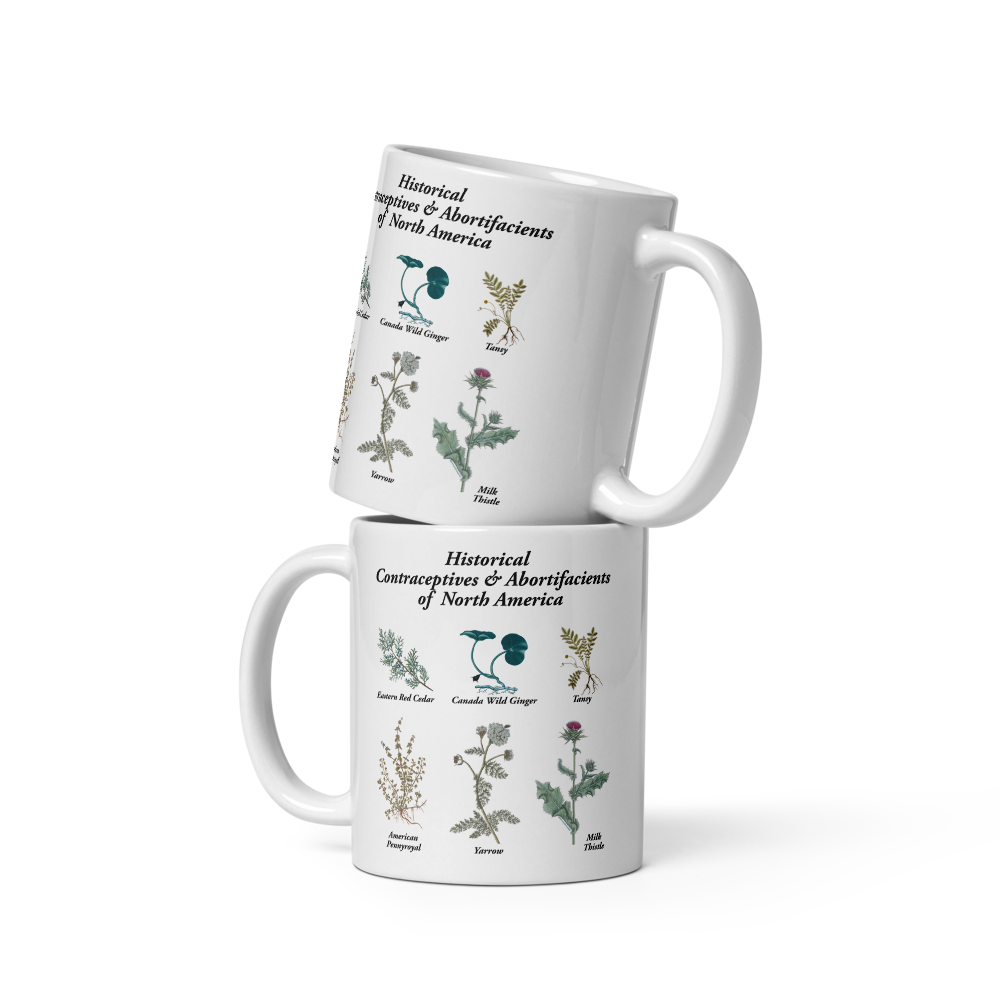Historical Contraceptives and Abortifacients Mug
Couldn't load pickup availability
This glossy mug features a selection of plants that have been used for birth control (to both prevent pregnancy and to end it) on each side of the mug: Eastern Red Cedar, Canada Wild Ginger, Tansy, American Pennyroyal, Yarrow, and Milk Thistle. 11 oz mug dimensions: 3.85" (9.8 cm) in height, 3.35" (8.5 cm) in diameter. These mugs are both dishwasher and microwave safe.
Birth control, via contraceptives and abortifacients, is traditional across world cultures. For as long as pregnancy has been occurring, people have sought to prevent pregnancy and to prevent birth for a multitude of reasons. Until the rise of the Church, the matters of preventing pregnancy or ending it was not considered a moral one. Most birth control was herbal throughout human history. The plants referenced in this work are a small sample of herbal birth control methods historically used on the North American continent. European settlers would bring plants such as the milk thistle and tansy, which would join native plants such as Canada wild ginger and yarrow in the contraceptive repertoire of Indigenous (and European) people.
Please note that this information is for educational purposes only and should not be considered medical advice. Modern contraception and abortion is medical care that if done correctly, is safer than historical herbal contraceptives and abortifacients.
A special thanks is due to the New York Public Library’s Digital Collections, which has archived their Rare Book Division and Manuscripts and Archives Division online as part of the public domain. The original illustrations were engraved by Elizabeth Blackwell circa 1737 (“A curious herbal: containing five hundred cuts, of the most useful plants, which are now used in the practice of physick. Engraved on folio copper plates, after drawings taken from the life. By Elizabeth Blackwell. To which is added a short description of ye plants; and their common uses in physick”), and Jacob Bigelow (“American medical botany: being a collection of the native medicinal plants of the United States, containing their botanical history and chemical analysis, and properties and uses in medicine, diet and the arts, with coloured engravings”) circa 1817-1820.


